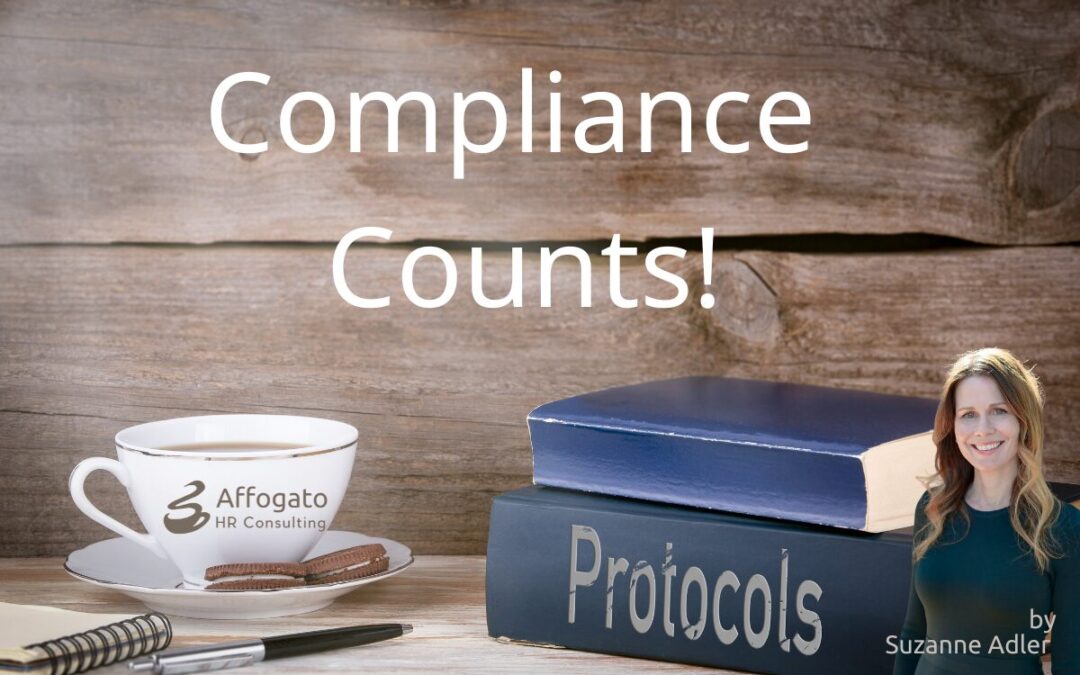Have you ever sat through a team meeting where someone casually said, “We should probably look at updating our leave policy,” and everyone just nodded and moved on? Weeks pass. Then a complaint is filed, and what suddenly seemed like a small task becomes a much bigger issue.
For those who haven’t worked with me yet, I’ve been with Affogato for the past three years. My perspective is grounded in what HR looks like at its best. That means acting with intention and operating from a few clear principles. My first is the equitable exchange of talent. My second? Just as essential, especially for growing businesses.
Core Principle #2: Compliance Counts
Compliance isn’t the most glamorous part of HR. It doesn’t get the same attention as analytics, optimization, or culture building. My approach to HR emphasizes compliance because when your team is small or mid-sized, it matters more. The nuances are more complex, and the stakes are higher.
For growing companies, compliance often sits in tension with the desire to stay nimble. Many clients often want to preserve the flexibility and people-first culture that makes their businesses unique. Sometimes, in doing so, compliance gets overlooked.
Take something as simple as letting employees estimate their hours. It sounds harmless, even accommodating. But if challenged, it can unravel into unpaid wages, penalties, and a hit to employee trust. What begins as flexibility can quickly turn into a nightmare.
My lens on compliance is rooted in risk management. In HR, few decisions are black and white. When dealing with people, most decisions live in shades of gray. My job is to navigate that gray with clients, offering the right information and context so they can lead with clarity, not guesswork. Because the real risk? Is not knowing.
And while compliance is critical, preserving a strong, people-centered culture matters too. The goal isn’t to choose between risk and culture, it’s to manage both. That means designing policies that reflect your values and implementing processes that support employees. When compliance and culture are aligned, you don’t just reduce risk; you strengthen your company.
Compliance may not grab headlines, but it does something more powerful: it creates stability. It gives your team clarity, your leaders breathing room, and your company space to grow. At Affogato, that’s the kind of foundation we build with every client.
Is it time for an update? Send us an email and let’s talk!
Jonna, Suzanne, Lisha, Lisa, Karen and Linda

